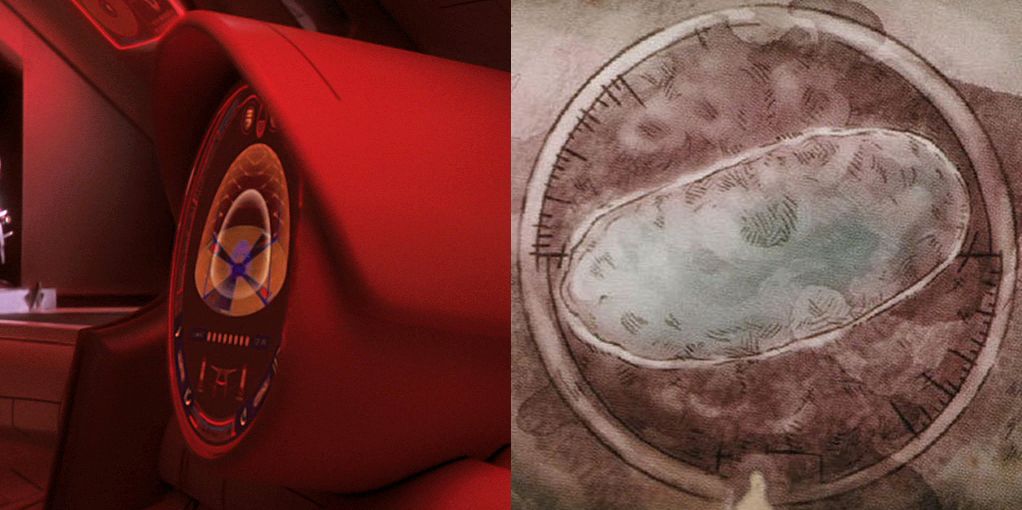Star Wars: What Are Midi-chlorians And How Do They Work?

Jedi Master Qui-Gon Jinn first described midi-chlorians to a young uninitiated Anakin Skywalker on a ship platform in the Galactic City of Coruscant. Chancellor Palpatine tempted Jedi Knight Anakin with a story about the power of midi-chlorians over life and death. Doctor Pershing sought the blood of Grogu for Moff Gideon because of his high ‘m-count.’ It is almost as if they are found in all Star Wars things, surrounding the franchise, penetrating it, binding all ideas together. So, what are midi-chlorians, anyway, and how do they work?
Reports show that George Lucas invented these microscopic organisms as far back as 1977 but chose not to use the idea until the Prequel Trilogy at the turn of the century. He also intended to fully explore the concept with his Sequel Trilogy before he sold Star Wars to Disney in 2012. Disney, evidently, did not have room for Lucas’ views in their plans for franchise domination, despite the brief consultation Lucas had with JJ Abrams over Rise of the Skywalker. When midi-chlorians were introduced on-screen in 1999’s Star Wars: Phantom Menace they were caught up in the heaps of negative criticisms about the Prequel Trilogy. To such a degree, in fact, that their presence, like that of Jar Jar Binks, was greatly diminished in the Saga going forward. Only now, on Disney Plus’s The Mandalorian are midi-chlorians making a quiet comeback.
There are two spheres in which midi-chlorians are involved. The first is the biological side of their nature, the second is their spiritual nature. It appears that Jedi’s during the Republic Era understood and applied the biological side of midi-chlorians more so than post-Order 66 Jedi’s. This could be due to the loss of knowledge after the Fall of the Jedi Temple, or, that the types of Jedi remaining, like Obi-Wan and Yoda, have a greater connection to the spiritual side.
As for the biological aspect, midi-chlorians are described as microscopic organisms that live inside the cells of all living creatures. They are sentient, and their role is to intermediate between the host and the Force. The Force user contacts the midi-chlorians who then speak with the Force. The higher the count of midi-chlorians in a host, and the more sensitive the host is to listen to the midi-chlorians, the greater the power of the host to wield the Force.
Qui-Gon and Obi-Wan discover that Anakin has an enormous amount of midi-chlorians, over 20,000, making him potentially the prophesied one who will bring balance to the Force. Palpatine alleged in the Tragedy of Darth Plagueis the Wise, that midi-chlorians can extend the lives of users and can even affect life and death. Moff Gideon and Doctor Pershing seek the blood of baby Grogu specifically because he too, like Anakin, has a high midi-chlorian count. What they do with the blood has not been revealed yet.
For the mystical nature, midi-chlorians participate and reflect life in the universe. They form a symbiotic relationship between the Force and the host creature, which is the pattern to which all life must come into balance. The Force is described as the energy field created by all living things, and those aware of it develop a relationship with the midi-chlorians to consciously, deliberately, communicate with the Force. That relationship is the foundation of both the Jedi and the Sith Orders. All life has access to the Force, all have midi-chlorians, but not all life is aware of that, nor cares about it. The Jedi and the Sith devote their lives to examining and exploring the deeper meaning of their relationship with the Force. One for the greater good, the other for self-interest.

Without an explanation, it was easy for fans to confuse midi-chlorians with the Force itself, thereby removing the mystical element offered in the Original Trilogy. This is the cause of the backlash against the concept. Midi-chlorians were a way to explain the source of the Force, not to replace it.
It will be interesting to see where midi-chlorians end up next in Star Wars canon, if they are given any more focus or are once again forgotten after their brief use in The Mandalorian. It must also be noted that the idea was explored further in Legacy products, such as James Luceno’s novel Darth Plagueis. However, stories like this are no longer valid in the Disney Star Wars universe.
The introduction of midi-chlorians in Star Wars: The Phantom Menace was met with mixed results, most fans disliking the insertion of science into what was originally considered spiritual territory. It became one of the points of contention against the Prequel Trilogy, in addition to Jar Jar Binks, the Trade Federation droids, among many other things. Depending on how far The Mandalorian goes with the idea, the concept of midi-chlorians may just be redeemed in the eyes of Star Wars fans.

Post a Comment